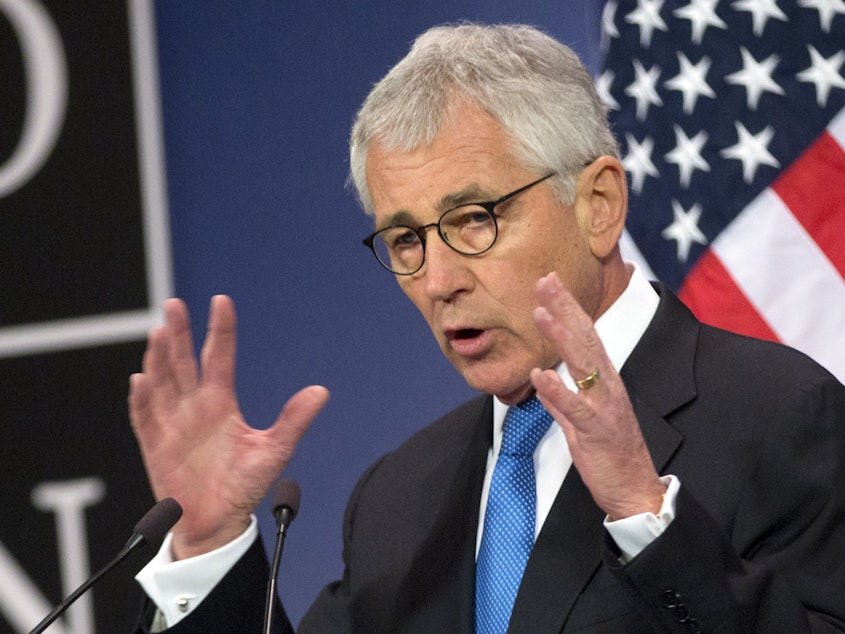Former Defense Sec. Hagel Says GOP Hesitation On Election Is 'Hurting Our Country'

One week ago, President Trump fired his defense secretary, Mark Esper, and quickly installed Christopher Miller, a relatively low-profile counterterrorism official, in the role on an acting basis. Trump then shifted key loyalists into other senior Department of Defense jobs.
All of these moves are happening as a transition on national security issues to President-elect Joe Biden that should be underway is stalled.
"It's not good news ... and I think everybody knows that," says Chuck Hagel, a Republican who served as defense secretary from 2013 to 2015 under President Obama.
Hagel says the country's current circumstances – a pandemic, a struggling economy, a divided country and government paralysis – mean the new administration needs a smooth transition more than ever.
"They need access to all of our government. And they need it because it's in the interest of their planning, of their valuations, of their judgments on what's going on, what are the threats," he told All Things Considered. "And so, when you take out senior members of one of the most important Cabinet agencies in government, that's a problem, because it hits decision-making processes. ... It's a whole of government issue. Our national security is not just about the Defense Department, but Homeland Security, our intelligence agencies, the State Department."
Sponsored
Hagel reiterates that the day-to-day work of the military won't be disrupted during the transition. And he says he has high confidence in senior military commanders, such as Gen. Mark Milley, chairman of the Joint Chiefs of Staff.
But he notes that ultimate control of the U.S. armed forces resides with civilians — starting with the president, as commander in chief.
As a result, Hagel says, the military "could very well be put in a very tough situation and some pretty delicate spots here in the next 60 days. For example, if they're given an order to attack an Iranian ship in the Persian Gulf ... that would be a problem."
Before he was defense secretary, Hagel served 12 years as a U.S. senator from Nebraska. He says he has talked to some former colleagues — Republican senators who, like the president, have not acknowledged Biden as president-elect. The Associated Press and other networks called the race for Biden more than a week ago after it became clear Trump no longer had a path to victory.
"I remind them that their responsibility is a higher responsibility to this country than loyalty to a party or a president," he says. "Some say, we know, but we want to give the president a little time."
Sponsored
Hagel notes that one current Nebraska senator, Republican Ben Sasse, is among those who have congratulated Biden. But Hagel says he thinks he knows why others have hesitated: the fact that President Trump received more than 70 million votes.
"There's a base out there that's going to probably remain. Those are constituencies of these senators and congressmen. I get that," Hagel says.
"But at some point, you've got to have a North Star here. At some point, you've got to put your country first," he continues. "And these people understand the threats to this country, and they're hurting our country when they don't step forward and say, no, we know what the facts are, the judgments are, the certifications have been made. It's time now to move on." [Copyright 2020 NPR]



